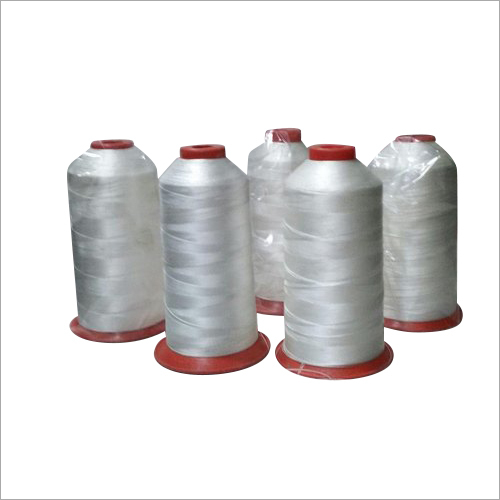
Sewing Thread
Product Details:
- Length 10000 Meter (m)
- Thread Count 2 ply
- Application Quilt and Sewing
- Pattern Plain
- Color White
- Yarn Type Synthetic
- Product Type Thread
- Click to View more
Sewing Thread Price And Quantity
- 90 INR/Roll
- 20 Roll
Sewing Thread Product Specifications
- 10000 Meter (m)
- 2 ply
- Quilt and Sewing
- Plain
- White
- Synthetic
- Thread
Sewing Thread Trade Information
- Cash Advance (CA)
- 20000 Roll Per Month
- 10 Days
- Yes
- All India
Product Description
We actively participate in the production and supply of a wide variety of Sewing Thread by keeping track of the most recent market changes. The variety is utilised for upholstery, denim fabrics, woven clothing, and knitted clothing. With the aid of cutting-edge technology, the offered range is carefully created in accordance with predetermined industry standards. Sewing thread is well regarded for its long life and strong strength and is offered in various specifications based on client-specific needs.
Frequently Asked Questions
What is sewing thread called?
A form of yarn, thread is also used for stitching. Numerous materials, such as cotton, wool, linen, nylon, and silk, can be used to create it.
What thread is best for sewing?
Strong and long-lasting polyester thread is ideal for all types of sewing. When laundered, polyester thread doesn't shrink or lose its colour. Additionally, polyester thread doesn't create a lot of lint, keeping your machine cleaner. In fabric and craft stores, the majority of "all purpose" thread is made entirely of polyester.
What material is sewing thread?
The most popular natural fibre used to manufacture thread is cotton. Other natural fibres include silk, wool, jute, ramie, hemp, rayon, Lyocel, silk, and linen. Climate variations have an impact on natural fibres and they are typically less uniform than synthetic fibres.
What is the use of sewing thread?
Traditionally, seams have been adequately strong, elastic, and aesthetically pleasing by utilising sewing thread to bind together cut components.
What is the best type of thread?
One of the modern synthetic threads with the greatest strength is nylon. In comparison to polyester thread, it has a higher strength-to-size ratio and is renowned for its flexibility and suppleness. Nylon is perfect for heavier fabrics used in home decor because of its great tensile strength.

